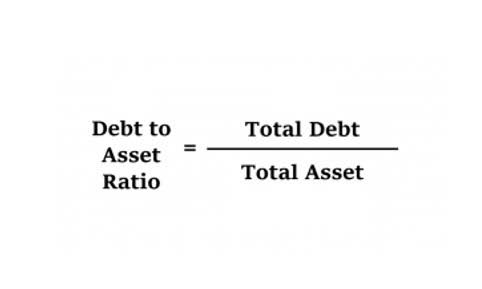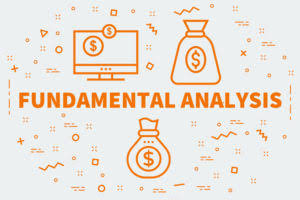
Self-taught bookkeepers use a variety of courses, seminars, books, and other online resources to learn about bookkeeping and accounting. You can also learn how to use accounting software, like QuickBooks, which can teach you about the basics of bookkeeping as well as the technology used by many businesses. You may be able to get on-the-job training through a bookkeeping job that only requires a high school diploma, such as an internship or training placement.
Flexible Work that Works: Revolutionizing Tax and Bookkeeping Careers with Intuit

As long as you maintain a GPA of 2.5 or higher in each course, you’ll receive a certificate upon completion of all courses in the program. This online program is offered through Coursera, which offers a seven-day free trial. After that, there is a $39 monthly fee that must be paid while you are taking courses and exams. Parts 1 and 2 must be taken at a testing center and parts 3 and 4 are qualified bookkeeper “take-home” exams that you can complete at your own pace and mail to the AIPB for grading. You must earn a grade of 75% for parts 1 and 2 and 70% for parts 3 and 4 to achieve certification. Once you have submitted your application, you must ensure that you meet the work experience requirement, which is at least two years or 3,000 hours, before you are eligible to seek certification.
What do you think is the most important skill bookkeepers need to succeed?
According to the US Bureau of Labor Statistics (BLS), most bookkeepers can learn the profession’s basics in about six months [3]. Once you become a qualified bookkeeper, you can work as a permanent employee or freelancer. Intuit is dedicated to providing its employees with the ability to learn and grow throughout their time with our company. Once candidates are hired as employees, they will be provided with training assignments and other resources that prepare them for their positions.
The Support to Grow your Tax and Bookkeeping Career, Your Way
Simply put, bookkeepers are responsible for all financial activity and oversight of a business. They record and organize financial statements, ensure compliance with important tax rules, and facilitate all ingoing and outgoing payments on specific business accounts. Before jumping straight into either exam, you must first take a series of courses. Prior bookkeeping experience does not exempt you from these preparatory courses. Completing courses and workbooks can help you prepare for and pass your bookkeeping exam.
Expand Your Job Opportunities

This is a great way to gain real-world experience as you become a bookkeeper and, potentially, a bookkeeping business owner. Previous work experience makes finding clients as a bookkeeping business owner much easier. These don’t require you to go to school or gain any special training, but they may be skills you’ll need to develop over time. It’s completely possible to become a skilled and successful freelance bookkeeper without the need for a specialized degree or lengthy certification.
However, these certifications differ in scope, prerequisites, and renewal requirements. For example, unlike a CB credential, CPB licensure requires training in QuickBooks. The process of maintaining certification can help you keep your skills sharp over time as well. To renew your certification, you must complete continuing coursework, attend professional development programs and take part in training workshops. While these requirements may sound tedious, they could benefit your career in the long term.
Featured or trusted partner programs and all school search, finder, or match results are for schools that compensate us. This compensation does not influence our school rankings, resource guides, or other editorially-independent information published on this site. To understand the training materials, you should be a working bookkeeper or have 1 year of college accounting or the equivalent. The Certified Bookkeeper (CB) program is not basic bookkeeping—it does not teach novices to become bookkeepers. Cecilia is a freelance writer, content marketing strategist and author covering education, technology and energy.
Key Soft Skills for Bookkeepers
After you have completed everything, you’ll schedule the certification exam. Some bookkeepers, especially those with bachelor’s degrees in accounting, may decide to become certified public accountants (CPAs). CPAs have similar job responsibilities to bookkeepers, but must also analyze data, suggest best practices, and make predictions. Professionals who are not interested in leadership may also prefer bookkeeping jobs over accounting roles.

- According to Payscale, people in the US with a bookkeeping certification can earn, on average, $55,000 per year [2].
- A bookkeeper can help ensure your business finances are organized and lets you focus on running and growing your small business.
- Coursera’s editorial team is comprised of highly experienced professional editors, writers, and fact…
- For preparatory courses and workbooks, AIPB charges $254 for members and $314 for members.
- CB certification doesn’t have specific education requirements, as AIPB recommends candidates have at least some accounting experience before taking the exam.
- The benefits include increased earning potential, improved job prospects, greater credibility and recognition in the industry, and a stronger foundation in bookkeeping principles and practices.
- Earning a bookkeeping certificate can be a valuable investment in your bookkeeping or accounting career.
Professionals can increase their earnings potential by obtaining a certification, gaining experience, or pursuing a specialization. Bookkeepers assist with maintaining records and analyzing companies’ financial health. Professionals may perform multiple tasks, including record-keeping, cash flow management, and payroll. Accounting department employees should have generally accepted accounting principles (GAAP) knowledge, logic, and the ability to pay attention to details.

Leave a Reply